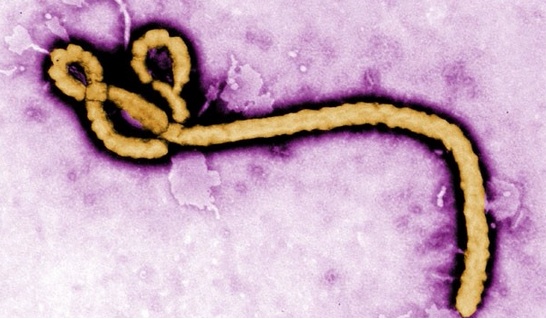![JSR_Aug09_Ebola The current West African Ebola outbreak is the worst in the history of the disease, which was first identified in the 1970s. [Centers for Disease Control and Prevention]](http://www.jstudentboard.com/reporter/wp-content/uploads/2014/08/JSR_Aug09_Ebola-300x175.jpg)
Whether these doctors should be brought to the United States has sparked fear of outbreak among the American people. However, the Centers for Disease Control and Prevention (CDC) has decided correctly in bringing the Americans back to the country.
Dr. Brantly arrived Saturday, August 2, and Writebol landed on Tuesday, August 5. Although seriously ill, both patients are described as “improving” after being given doses of an experimental serum that has yet to undergo clinical trials. The two are currently staying in isolation units at Emory University Hospital in Atlanta, which CNN describes as “one of four US institutions” capable of caring for them.
Even though the patients are in isolation, many still fear the possibility of a mass outbreak. People are anxious about catching the virus, which begins with flu-like symptoms before escalating to deteriorate kidney and liver function and cause internal as well as external bleeding, diarrhea, and vomiting. Compounding these fears is the mortality rate of Ebola, which has been as high as 90% in previous epidemics.
Yet Dr. William Schaffner, an infectious disease specialist at the Vanderbilt University School of Medicine, has stated, “the risk for Americans is essentially zero.”
This is because the virus is not airborne and spreads through contact with bodily fluids like blood, saliva, urine, and other secretions of those that are infected. Victims continue to be contagious after death, and the spread of the virus has been linked to burial practices in West Africa that involve the ritual cleansing of bodies.
According to Schaffner, “The average citizen . . . [can] be reassured that this viral infection is not going to establish itself in this country. We don’t have the environment that is conducive to this virus.”
Jaeyi Hahn, a rising junior at North Hollywood High School, agrees with Dr. Shaffer and is not panicking.
“The return of the two infected individuals is not a dangerous or unjustified action at all,” Hahn told JSR, “because of the minimal risk methods taken by the United States officials and the chance to observe the virus and work on a way to prevent an epidemic from spreading in the future.”
Despite all the anxiety that currently exists over the issue of the Ebola virus making its way into the United States, it is important to consider the issue with more perspective. These Americans caught the virus while doing voluntary humanitarian work in an attempt to alleviate the terrible conditions in Liberia. Their compassion and efforts ought to be applauded.
Dr. Gary Green, a program director at Abilene Christian University (ACU) who worked with Dr. Brantly during the latter’s undergraduate studies, has described him in ACU’s alumni magazine as “someone who is very compassionate, considerate, and always upbeat… Kent’s the kind of guy who would weigh benefits versus risk, then try to take himself out of the equation [and think], ‘What do I bring to the table? Is the risk worth taking because I can benefit so many people?’”
Opposition to treatment may even be dangerous, as opposition may send a negative message to doctors planning future medical trips to third world countries.
If the CDC were to have decided against bringing the doctors to the US, other humanitarians might be discouraged from going abroad to assist in the treatment of this and other diseases. If they are afraid that they’ll be rejected by their home country in the event of infection, then the doctors that are most well-equipped and well-educated may be reticent to share their knowledge or treat the patients living in third world countries. This may even increase the risk of diseases spiraling out of control within and outside of the countries where they originate.
Rather than fear Ebola, US citizens should support these humanitarian aid workers and those treating them.

